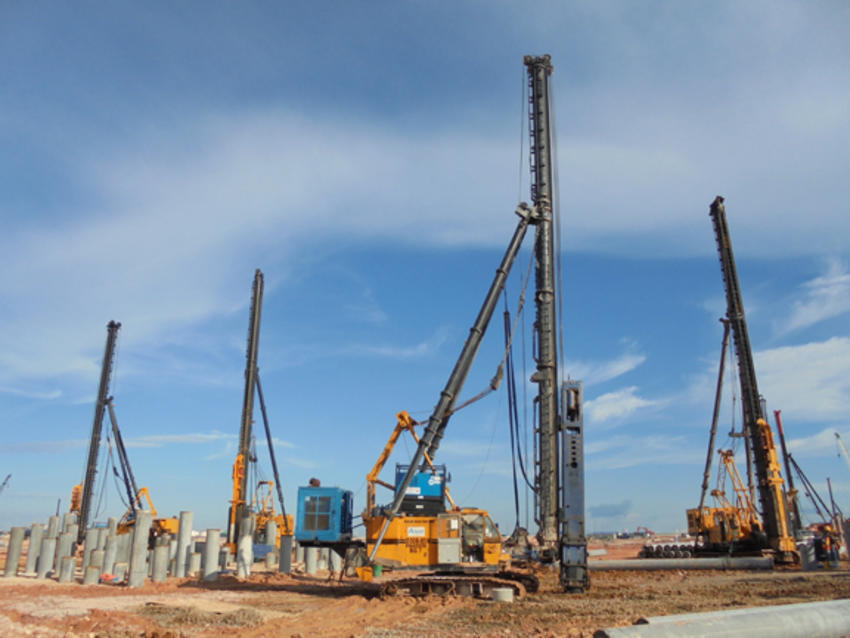The largest and most complex civil works project ever performed by Keller ASEAN was a global effort that lifted safety standards and project management capabilities across the region.

In 2015, Spanish contractor Tecnicas Reunidas won the tender for a multi-billion dollar oil and gas development in Johor, Malaysia. The company was new to Johor and required experienced local contractors to perform the works. With more than 30 years’ experience in the region, Ansah (Keller’s driven piling business based in Malaysia) was selected as the contractor for driven piles and micropiles works. “The client was really happy with Ansah’s performance and invited us to tender for other works on the project,” says Seah Yeow Teck, General Manager of New Territories for Keller ASEAN. “Our portion of the works included earthworks, foundations for oil pipes and structures (such as pilecaps and sleepers), roads, storm water drains and pre-stressed bridges.”
As a specialist subcontractor, most projects performed by Keller ASEAN involve less than 50 staff. However, the need for a trusted source of local expertise meant it was engaged as the main subcontractor on the RAPID project, managing more than 25 local subcontractors and coordinating the activities of more than 700 people working on site. “The size of the site (1.5km x 2km) and complexity of the project meant our team had to coordinate more than 30 activities at any one time,” Seah says.
Improving safety standards
“One of the biggest challenges we had right from the beginning was that Keller’s safety standards were much higher than the local subcontractors were used to,” Seah says. “We had to develop a large programme of activity to get them on board with our way of thinking, train them to work according to the higher standards, monitor their progress and reward them along the way. It was a huge effort, but we knew it was critical to delivering the project safely and on schedule.”
Keller’s global strength allowed it to mobilise resources from Malaysia, Singapore, Australia, Vietnam, Indonesia, Myanmar, Philippines and Bangladesh. “We had hundreds of people with different nationalities and languages who were all working towards the same goal,” Seah says. “It was quite extraordinary. But of course, it meant we needed clear communications and good logistics control so nothing would fall through the cracks.”
“One of the first things we did was set up different departments, led by capable managers who each reported to the Senior Project Manager, Danny Toh,” Seah says. “These included procurement, contract, quality, technical, construction, safety, HR and admin teams that addressed the specific needs of the project and our staff. There were a significant number of people involved—the Keller team alone had 75 people!”
“We also implemented daily meetings between managers, engineers and supervisors, to make sure we were supporting our 25 subcontractors and overseeing the quality and progress of each one,” Seah says. “It was a huge leap in project management capabilities. But we’re fortunate that our staff are open to working in new ways with different people, so there was no resistance to the change—in true Keller style, they just turned up and got to work.”
A team effort
The team faced other challenges during the course of the project, from an increase in steel prices due to shortages, to limitations on work permits for subcontractor staff. “They had the potential to cause significant delays, but the strong relationships we had with our client, local subcontractors and suppliers provided the resources we needed to keep the project on track,” Seah says. “We say it all the time, but this really was a team effort.”
In February 2017, the project was awarded the best subcontractor in terms of operation and health, safety and environment performance. “It’s a wonderful achievement,” Seah says. “Not only will we deliver the project to a high standard of quality and safety, but the local subcontractors are now trained to deliver projects to this standard in the future. So we’ve really had an impact on the communities in which we work.”
The portion of the works performed by Keller ASEAN are expected to be complete by the end of 2017.